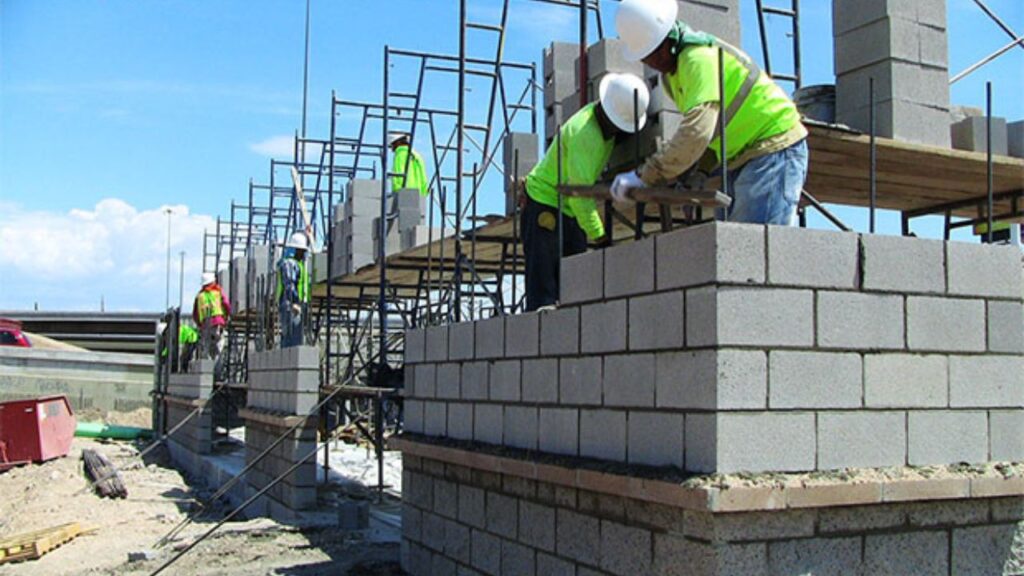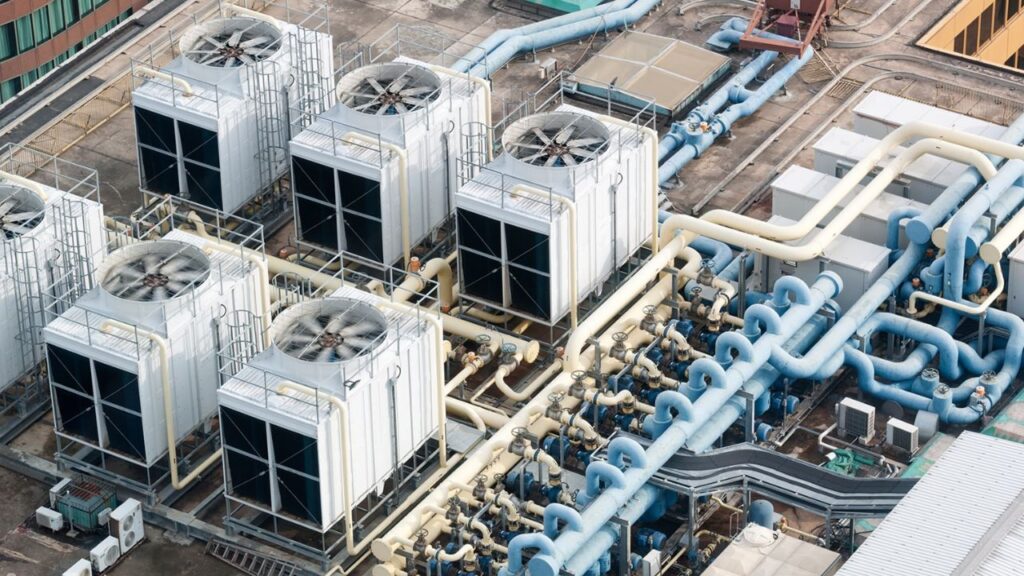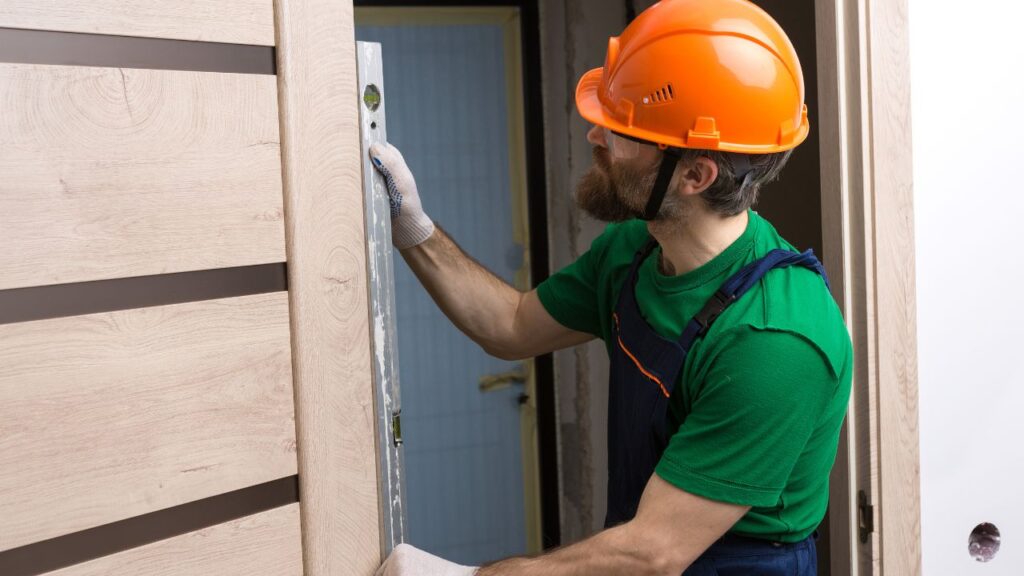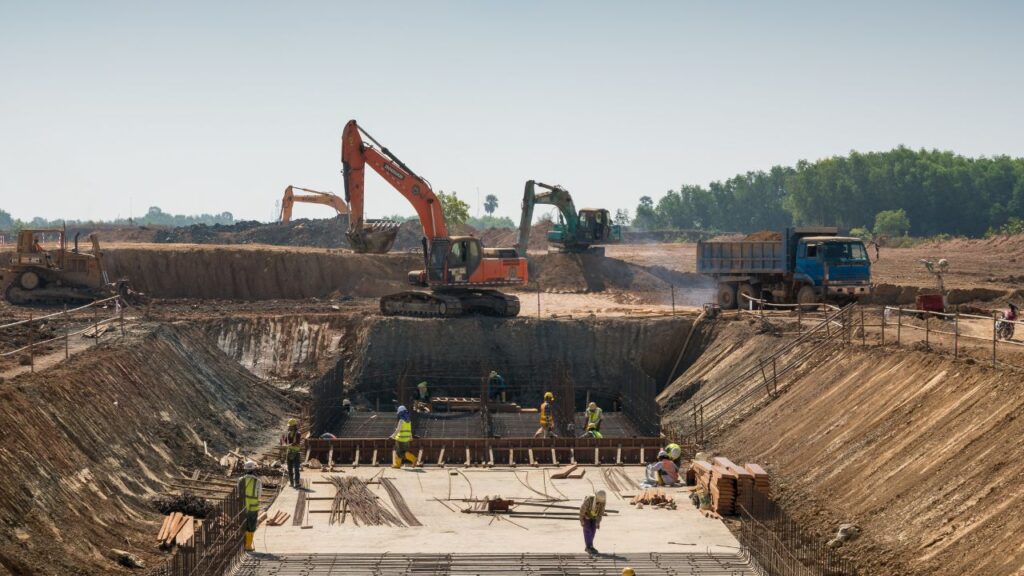Commercial Estimator in Bal Harbour
Leading provider of commercial estimating.
Bal Harbour—a thriving hub of business, tourism, and cultural vibrancy—offers immense opportunities for commercial construction projects. From high-rise office buildings to luxury retail spaces, the city’s dynamic real estate market demands meticulous planning and execution. This is where the expertise of a professional commercial estimator becomes indispensable.
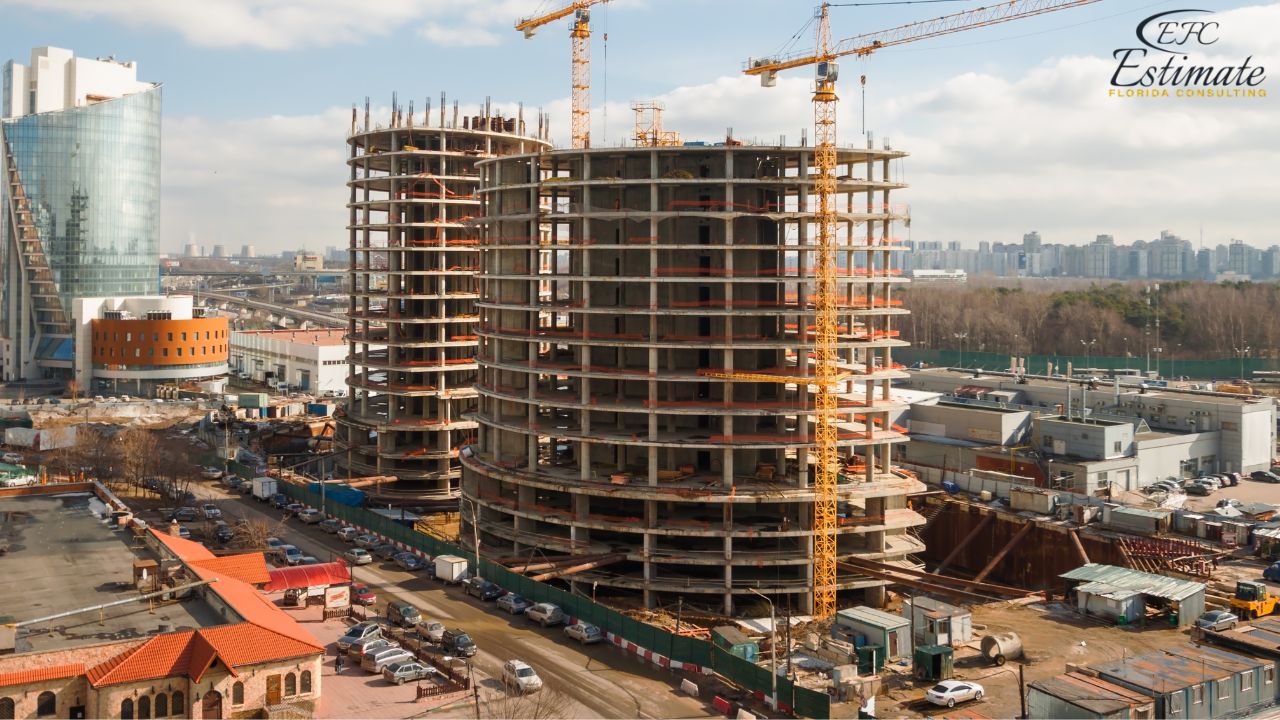
We Work for All Construction Trades
Construction trades encompass a variety of specialized roles, each critical to the successful completion of a project. Skilled tradespeople not only ensure the work is done right but also enhance safety, efficiency, and compliance with local building codes. From the initial groundwork to the final touches, every step requires expertise from dedicated professionals.
What Does a Commercial Estimator Do?
A commercial estimator plays a pivotal role in the pre-construction phase of any project. Their primary responsibility is to develop accurate cost estimates, ensuring that projects stay within budget while meeting quality and timeline requirements. Here’s what a commercial estimator typically handles:
- Cost Analysis: Breaking down material, labor, and equipment costs.
- Budget Preparation: Creating detailed budgets that align with the project’s scope.
- Risk Assessment: Identifying potential financial risks and recommending solutions.
- Bid Preparation: Assisting contractors and developers in submitting competitive bids.
- Vendor Coordination: Negotiating with suppliers to secure the best pricing.
Why Bal Harbour Requires Specialized Estimating Expertise?
The commercial construction landscape in Bal Harbour is unique, influenced by:
- Climate Challenges: Bal Harbour’s tropical climate requires resilient materials and design strategies to withstand heat, humidity, and hurricanes.
- Stringent Building Codes: Local regulations demand adherence to strict safety and sustainability standards.
- High Demand for Luxury: From upscale hotels to premium office spaces, projects often require top-tier materials and finishes.
- Labor Market Variability: Bal Harbour’s fluctuating labor market can impact project costs and timelines.
A commercial estimator in Bal Harbour must account for these factors to provide precise and reliable estimates.
Benefits of Hiring a Local Commercial Estimator
1. Local Market Knowledge
A Bal Harbour-based commercial estimator possesses comprehensive insight into the city’s unique construction industry. They are well-versed in local pricing trends, ensuring that cost estimates are accurate and realistic. Additionally, they understand the availability of materials and the specific labor market dynamics in Bal Harbour, which can significantly influence project timelines and budgets. This localized expertise helps in creating competitive bids and avoiding unexpected costs, ensuring your project stays on track financially.
2. Compliance Expertise
Navigating Bal Harbour’s complex building codes, zoning regulations, and environmental guidelines requires specialized knowledge. A local commercial estimator brings invaluable expertise in these areas, ensuring that your project adheres to all legal and regulatory requirements. Their proficiency in compliance minimizes the risks of delays, fines, or legal complications, which can otherwise derail a construction project. By addressing these factors upfront, they provide peace of mind and smooth progression from planning to completion.
Get Acquainted with Estimation
Secrets of Successful Bids: Advanced Tips for Construction Managers
Mastering Bids: 12 Pro-Level Bidding Tips for Construction Managers
3. Optimized Resource Allocation
Efficient resource allocation is critical for any construction project. A Bal Harbour-based estimator leverages their understanding of the local supply chain to recommend cost-effective materials and suppliers that meet project requirements without sacrificing quality. Their knowledge extends to sourcing skilled labor and negotiating favorable terms with vendors, ultimately optimizing resources and reducing waste. This strategic approach not only controls costs but also enhances the overall efficiency of the project.
4. Tailored Solutions
No two construction projects are alike, especially in a diverse and vibrant city like Bal Harbour. Whether your project involves building a luxury beachfront hotel, a state-of-the-art medical facility, or a commercial complex in Downtown Bal Harbour, a seasoned estimator can craft customized cost solutions. They take into account the project’s specific goals, location, and challenges, delivering a tailored approach that aligns with your vision. This level of personalization ensures that your project is both financially and operationally successful.
Commercial Construction Costs by Building Type
When considering various building types, updated data from Cummings Construction Market Analysis reveals the average cost per square foot for different commercial building categories in the Bal Harbour the figures are as follows:
Commercial Offices
The construction cost for commercial office buildings in Bal Harbour varies significantly depending on the building’s size, design complexity, and the number of floors. For a single-story office building, the average cost is approximately $394 per square foot. Mid-rise office buildings typically cost around $708 per square foot, while high-rise office buildings can reach up to $832 per square foot. The increased costs for multi-story structures are driven by several factors, including the use of higher-quality, more expensive materials, stricter building codes that ensure safety and sustainability, and increased labor rates for the specialized workforce required for taller buildings.
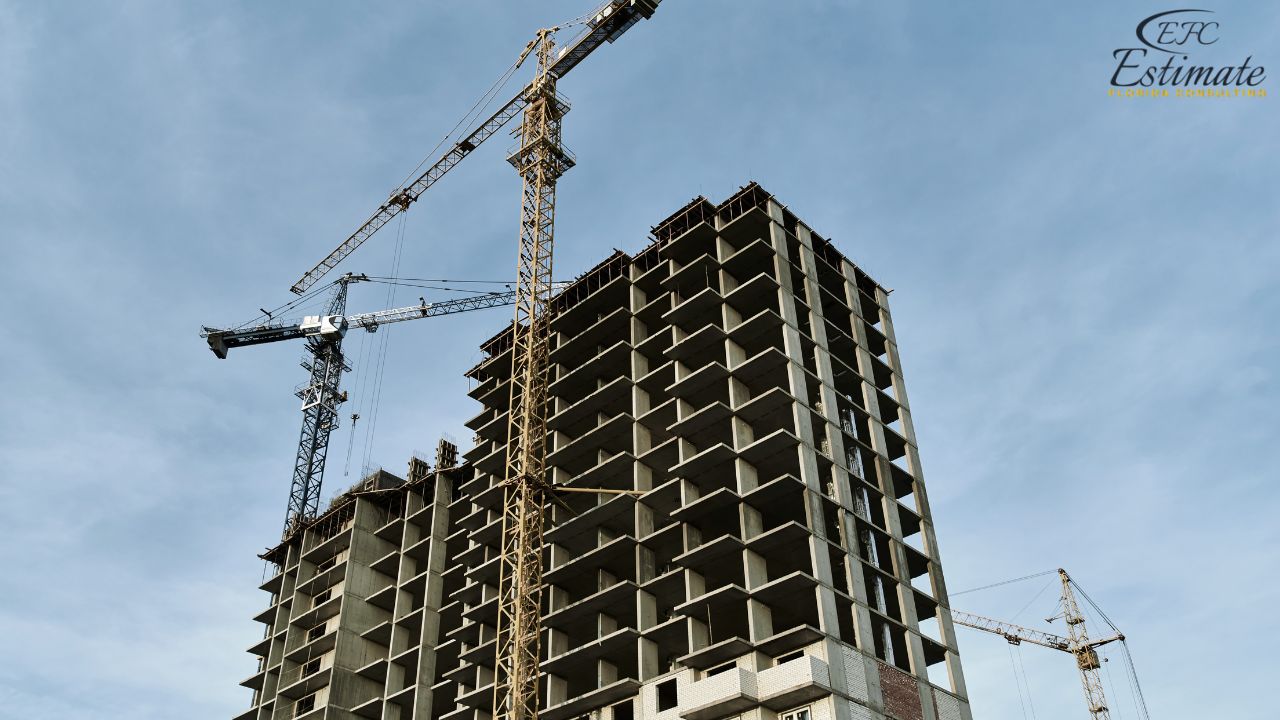
Manufacturing Facilities
Manufacturing facility costs vary by use. Regional distribution warehouses average $263 per square foot, while technology laboratories cost $800. Facilities requiring advanced safety or electrical systems incur additional costs for specialized labor and materials.
Schools and Universities
Schools and universities are vital to communities, and their average cost for elementary through high school buildings ranges from $372 to $452 per square foot. For universities:
- Dorms: $406 per square foot
- Classroom Buildings: $731 per square foot
- Administrative Buildings: $750 per square foot
- Laboratory Buildings: $965 per square foot
Hospitals and Healthcare Facilities
Healthcare facilities such as hospitals and clinics require specialized infrastructure, making them more expensive to build. The average costs are:
- Medical Clinics or Offices: $628 per square foot
- Specialty Clinics: $780 per square foot
- Acute Care Facilities: $1,118 per square foot
Public Spaces and Community Buildings
Community buildings, including museums, police stations, and recreational facilities, show significant cost increases. Museums and performing arts buildings average $1,123 per square foot, while other public community buildings cost approximately $661.
Shopping Centers and Parking Structures
Shopping centers, including regional malls and strip malls, have experienced price hikes. The average construction costs are $676 per square foot for regional malls and $468 for strip malls. Parking structures, often required for such projects, now cost:
- Underground Parking Garages: $180 per square foot
- Above-ground Parking Lots: $90 per square foot
Your trusted commercial experts, Get started Now!
Costs Table for Commercial Buildings
Building Type | Updated Average Cost per Square Foot |
Single-story offices | $394 |
High-rise offices | $832 |
Schools | $412 |
Universities | $710 |
Manufacturing facilities | $457 |
Healthcare facilities | $841 |
Museums and entertainment | $1,123 |
Shopping centers | $496 |
Parking structures | $135 |
The Role of Sustainability in Cost Estimation
Sustainability has become a cornerstone of modern construction in Bal Harbour. Commercial estimators now play a critical role in:
- Green Building Certification Costs: Estimating expenses related to achieving LEED or similar certifications.
- Energy Efficiency Planning: Analyzing the long-term cost savings of energy-efficient systems.
Sustainable Material Sourcing: Identifying eco-friendly materials that align with budget constraints.
Key Technologies Used by Commercial Estimators
Modern commercial estimators leverage advanced tools and technologies to enhance accuracy and efficiency. Some of these include:
- Building Information Modeling (BIM): BIM software helps in creating detailed project visualizations and accurate cost predictions.
- Estimating Software: Tools like ProEst, PlanSwift, and Sage Estimating streamline cost calculations and bid preparation.
- Cloud Collaboration Platforms: These enable seamless communication and document sharing among stakeholders, ensuring transparency.
- Data Analytics: Predictive analytics tools provide insights into market trends, helping estimators make informed decisions.
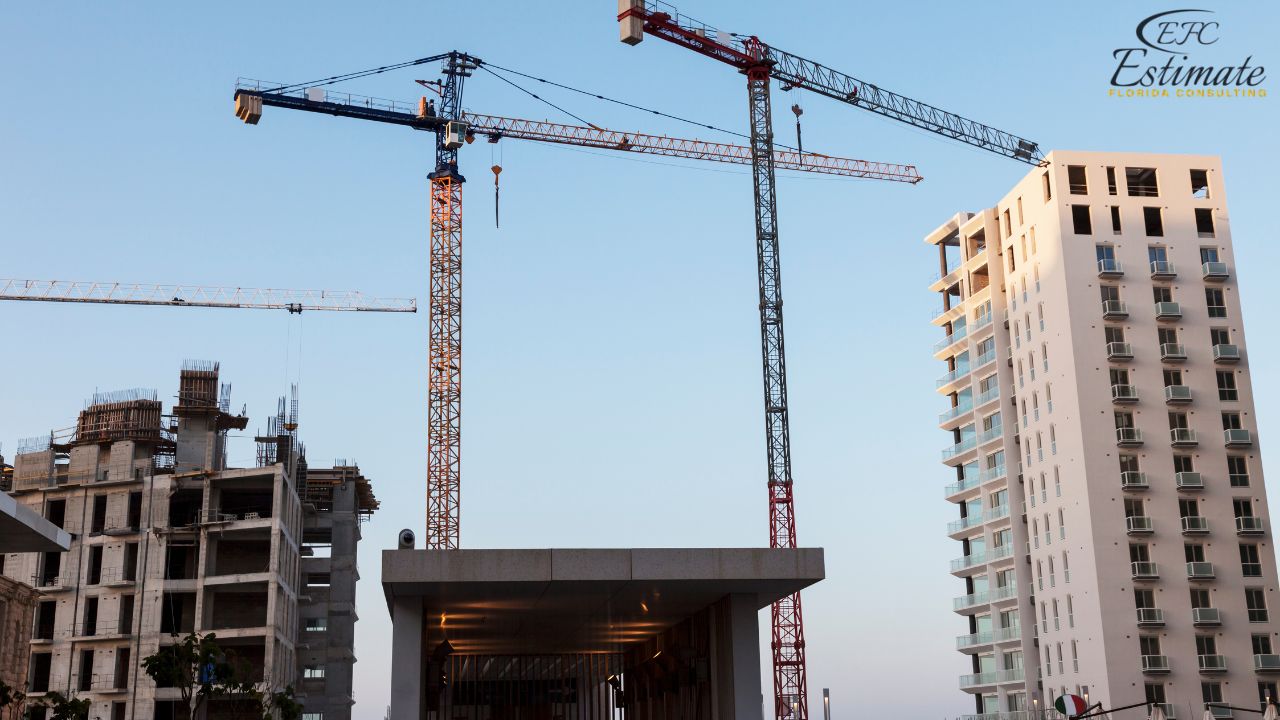
Challenges Faced by Commercial Estimators in Bal Harbour
1. Rapid Market Changes
Bal Harbour’s construction market is known for its volatility, with frequent fluctuations in material costs, labor rates, and demand for construction services. This dynamic environment requires commercial estimators to constantly monitor and adapt to changes to deliver accurate cost projections. Failure to account for these variations can lead to budget overruns, project delays, or missed opportunities for cost-saving measures. Staying ahead in this fast-paced market demands a deep understanding of current trends and the agility to adjust estimates in real-time.
2. Project Complexity
Large-scale commercial projects in Bal Harbour often involve a high level of complexity, including collaboration with multiple stakeholders, navigating intricate architectural and engineering designs, and meeting tight deadlines. Estimators must juggle numerous variables such as material specifications, subcontractor coordination, and scheduling constraints. Each decision can significantly influence the overall cost and timeline. Successfully managing these complexities requires precision, strong organizational skills, and the ability to anticipate potential challenges.
3. Environmental Risks
Bal Harbour’s geographic location exposes it to unique environmental challenges, such as hurricanes, flooding, and rising sea levels. These factors pose significant risks to construction projects, potentially leading to increased costs for protective measures, insurance, and contingency planning. Commercial estimators must meticulously assess and integrate these risks into their calculations, ensuring projects remain resilient and financially prepared for unforeseen events. Addressing these environmental considerations is critical to delivering sustainable and reliable cost estimates.
Download Template For Commercial Project Breakdown
- Materials list updated to the zip code
- Fast delivery
- Data base of general contractors and sub-contractors
- Local estimators

Conclusion
At Estimate Florida Consulting, we understand that a skilled commercial estimator is the cornerstone of a successful construction project, especially in a dynamic and competitive market like Bal Harbour. Our team of experts ensures your project is not only financially sound but also executed to the highest standards of quality and efficiency.
Whether you’re a developer planning a large-scale commercial venture or a contractor seeking precise and reliable bid support, partnering with Estimate Florida Consulting is a strategic choice that guarantees exceptional results. Don’t leave your project’s success to chance—trust our expertise to deliver precision, compliance, and cost-efficiency at every stage.
Frequently Asked Question
Commercial estimation refers to the process of predicting and calculating the costs associated with various aspects of a construction project, particularly for commercial buildings or large-scale projects. It includes estimating costs for:
- Procurement of materials: The purchase and delivery of necessary building materials.
- Labor allocation: The cost of workers and their time on-site.
- Equipment utilization: The costs related to using machinery and tools for the project.
- Site management: The cost of overseeing the project, including project management, logistics, and site organization.
To estimate the cost of a commercial building, several key factors need to be considered, including:
- Building Quality: The level of quality and complexity of construction, such as luxury finishes vs. standard finishes.
- Design and Architecture: The design elements, including the layout, style, and size of the building.
- Materials: The type and quality of materials used for construction, such as steel, concrete, or wood.
- Labor Costs: The cost of workers based on the project's size, location, and labor market conditions.
- Permits: Fees for necessary permits and inspections required by local authorities.
- Mechanical and Electrical Systems: The cost of HVAC systems, plumbing, electrical wiring, and other infrastructure.
- Finishes: The type and quality of finishes, such as flooring, lighting, and interior design elements.
Additionally, the location of the project will affect pricing due to variations in labor costs, material availability, and local regulations. The cost can be estimated on a per square foot basis, which will vary depending on the specific features and scope of the commercial building.
Here’s an 8-step process for estimating commercial construction:
- Review the Bid Package – Analyze all the documents, including plans, specifications, and any scope of work provided to understand the project requirements.
- Conduct a Site Visit – Visit the construction site to assess conditions, potential challenges, and site-specific considerations that may impact costs.
- Perform a Material Takeoff – List all materials required for the project and calculate quantities based on construction plans.
- Solicit Pricing from Suppliers and Vendors – Obtain current prices for materials, equipment, and services from suppliers and subcontractors.
- Evaluate Labor Requirements – Assess the type and amount of labor needed, including the skill level and time required for different tasks.
- Determine Insurance and Bonding Costs – Include any necessary insurance and bonding costs that are required for the project.
- Calculate Overhead and Indirect Costs – Account for business overhead, such as office expenses, utilities, and project management costs.
- Account for Profit and Contingency – Add a margin for profit and contingency funds to cover unexpected expenses or changes in the scope of the project.
A commercial valuation is an appraisal of a property that is used for business purposes. This type of valuation assesses the property's market value, considering various factors such as location, condition, income potential, and comparable properties. Commercial valuations can apply to a wide range of property types, including:
- Offices
- Retail stores
- Warehouses
- Industrial properties
- Medical centers
- Laboratories
The goal of a commercial property valuation is to determine its fair market value, which can be used for investment, sale, financing, or taxation purposes.
The most expensive part of commercial construction is typically the hard costs, which include the labor, materials, and equipment necessary for the actual construction. These costs can vary significantly based on:
- Extent of the renovation
- Quality of materials
- Finish selections made by the tenant
Hard costs generally account for 75 to 85 percent of the total commercial construction costs. Within this category, the most significant expenses are often structural work, mechanical and electrical systems, and high-end finishes.
A commercial estimator is responsible for preparing accurate cost estimates for new construction projects and managing the operational delivery of live contracts. Their key duties include:
- Reviewing project plans and specifications to understand the scope of work.
- Estimating material, labor, equipment, and overhead costs for the project.
- Negotiating with suppliers and subcontractors to gather pricing information.
- Preparing detailed cost reports and proposals for clients.
- Managing existing contracts by tracking costs and ensuring projects stay within budget.
- Utilizing software tools like Microsoft Excel/Office to create estimates and track project progress.
Their work helps ensure that projects are financially feasible, and they play a key role in maintaining profitability for the construction business.
Comprehensive Trade-Specific Estimates
At Estimate Florida Consulting, we offer detailed cost estimates across all major trades, ensuring no part of your project is overlooked. From the foundation to the finishing touches, our trade-specific estimates provide you with a complete and accurate breakdown of costs for any type of construction project.

Testimonials
What Our Clients Say
We take pride in delivering accurate, timely, and reliable estimates that help contractors and builders win more projects. Our clients consistently praise our attention to detail, fast turnaround times, and the positive impact our estimates have on their businesses.
Estimate Florida Consulting has helped us win more bids with their fast and accurate estimates. We trust them for every project!

Steps to Follow
Our Simple Process to Get Your Estimate
01
Upload Plans
Submit your project plans, blueprints, or relevant documents through our online form or via email.
02
Receive Quotation
We’ll review your project details and send you a quote based on your scope and requirements.
03
Confirmation
Confirm the details and finalize any adjustments to ensure the estimate meets your project needs.
04
Get Estimate
Receive your detailed, trade-specific estimate within 1-2 business days, ready for your project execution.





